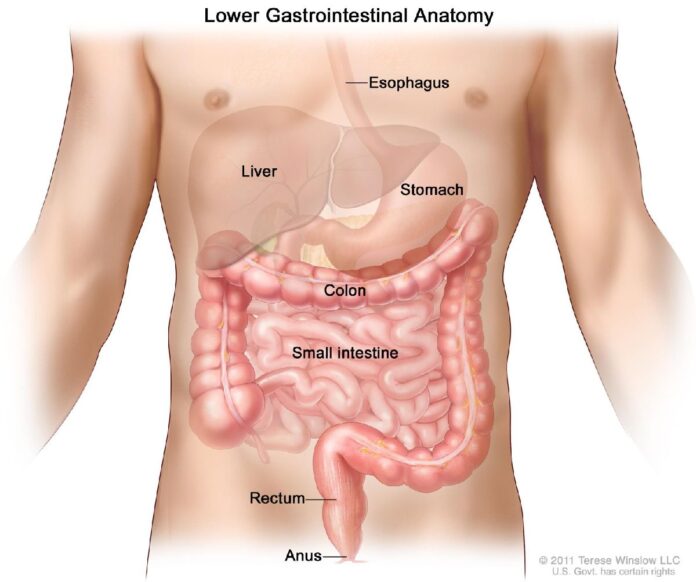Colorectal cancer refers to cancer that develops in the colon or rectal areas of the digestive system.
Excluding skin cancers, colorectal cancer is the third most commonly diagnosed form of cancer in American men and women and the second leading cause of cancer-related deaths.
Fortunately, the number of deaths attributed to colorectal cancer has been dropping over the past several years, most likely due to increased screening and improved treatment.
The colon is an approximately five-foot long muscular tube where food is digested, nutrients are absorbed and stool is formed.
Waste matter then goes into the rectum, the last six inches of the digestive system, before passing out of the body through the anus.
The wall of the colon and rectum has several layers of tissue.
Cancer can develop in the innermost layer and then grow through some or all of the other layers.
Before cancer starts, an abnormal growth of tissue or tumor begins as a non-cancerous polyp on the lining of the colon or rectum.
There are several types of polyps. Hyperplastic and inflammatory polyps usually do not become pre-cancerous.
Adenomatous polyps may potentially become cancerous over the course of several years.
Once cancer begins to develop, it can grow into the wall of the colon or rectum and then spread into blood or lymph vessels.
Most people with colorectal cancer do not know they have the disease because they have no symptoms until the cancer reaches an advanced stage.
Common warning signs of colorectal cancer include a change in bowel habits (diarrhea or constipation), a feeling that bowels do not empty completely, blood in the stool, cramps or bloating, unexplained weight loss and weakness or fatigue.
A person with symptoms should see a doctor for diagnosis and treatment as soon as possible.
Successful treatment is more likely when colorectal cancer is detected early.
Once the diagnosis of colorectal cancer has been made, treatment will depend on the tumor location and stage of the disease.
The most common treatment for colorectal cancer is surgery, which may involve removing a section of the colon or rectum and then reconnecting the healthy parts.
In addition, chemotherapy may be administered to kill cancer cells throughout the body.
March is Colorectal Cancer Awareness Month, aimed at informing and reminding consumers about colon cancer signs and symptoms, and available diagnostic tests and treatments.
To find a physician or a gastroenterologist near you, call Valley Baptist at 1-866-608-2273.
Screening tests to detect colorectal cancer include:
– Fecal occult blood test to check stool for small amounts of blood
– Sigmoidoscopy to examine the lower part of the colon
– Colonoscopy to view the large intestine and take tissue samples
– Barium enema to take x-ray images of the colon and rectum





